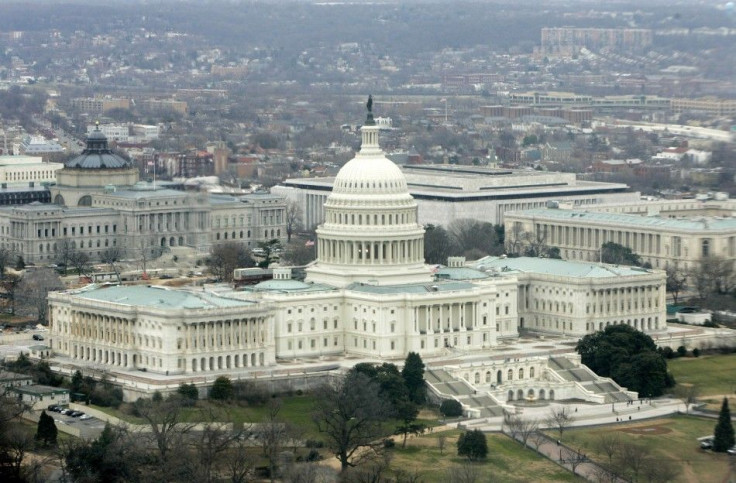A New Yorker's Opinion: Pew Poll's Anti-Incumbent, Occupy Wall Street Message
Is The American Dream Dead?

The latest Pew Research Center Poll has some interesting results, beyond recounting the increasing frustration we all have with Congress. For one thing, it is more bad news for the gang-race that is the present Republican Primary, as suggested by its headline, Frustration with Congress Could Hurt Republican Incumbents. But that's not the really interesting part to me. The really interesting part has to do the the message of Occupy Wall Street and the fading of the American Dream. First, though, the top-line political results:
Two-in-three voters say most members of Congress should be voted out of office in 2012--the highest on record. And the number who say their own member should be replaced matches the all-time high recorded in 2010, when fully 58 members of Congress lost reelection bids-- the most in any election since 1948, the Center states in the Poll's overview.
Interestingly 1948 is when the economy was just recovering, and converting from a war footing--and facing inflation in commodity prices, which translated into no gain in real incomes from a people exhausted by WWII and scarcity. At the same time, money supply and credit tightened. People were strapped and frustrated.
The main finding of the Poll is that the Republican Party is getting more of the blame, both from its own and non-Republicans: Just 31 percent approve of how Democratic congressional leaders have performed. But even fewer (21) approve of the job Republican leaders have done. Moreover, despite their party's majority status in the House of Representatives, seven-in-ten Republicans say most members of Congress should be replaced, as do 73% of independents and 60 percent of Democrats.
OK, so we all hate our elected officials, but what caught my eye was an additional bit of polling, about New York's own Occupy Wall Street movement. It seems to me such a starting finding that I am going to reprint a pretty large chunk of it, to avoid any editorializing edits:
By a 44 percent to 35 percent margin, more Americans support than oppose the Occupy Wall Street movement overall, and by 48 percent to 30 percent, more say they agree than disagree with the concerns the protests have raised. But when it comes to the way the protests are being conducted, significantly more disapprove (49 percent) than approve (29 percent).
Many of the themes of the Occupy Wall Street protests resonate with the public. About half (51 percent) say that Wall Street hurts the American economy more than it helps it; 36 percent are of the view that Wall Street helps more than it hurts. A 61 percent majority say the economic system in this country unfairly favors the wealthy, while 36 percent say it is generally fair to most Americans. And fully 77 percent say that a few rich people and corporations have too much power in this country. While still a minority view, the current survey finds 40% saying that hard work and determination are no guarantee of success, higher than in any other survey conducted over the past 17 years.
The two points spring to mind from this conclusion about OWS. First, look at the numbers about the so-called concerns and the way that OWS did its protesting. Sure, significantly more agreed with the concerns and a significantly larger number didn't like the unruly approach.
But when you compare that to the actual point being made by the protest, namely that the system is rigged to favor the rich and corporations, a huge majority of Americans (77 percent) now recognize that this is the case. So OWS has done its work. That was the point, the only real one that the 99 percenters were talking about.
Perhaps more telling, too, is that last result, tucked away at the end. That a full 40 percent no longer think hard work and determination guarantee success.
And by the way, another result of the poll showed that more Americans describe themselves as part of the haves (46 percent) than the have-nots (30 percent). So guess what? It might just be that about 30 percent of the 40 percent are not just theorizing, but speaking about their own experience in the workplace. That's both compelling and depressing.
That level playing field is the American Dream. No more, no less. And that is a cultural shift even larger than dissatisfaction with elected officials. It pretty much shakes the very foundation of our social, political and legal framework: The idea that everyone is treated equal and gets a fair shot. Because if the system isn't fair, then it isn't democratic in a practical, daily sense.
© Copyright IBTimes 2025. All rights reserved.





















